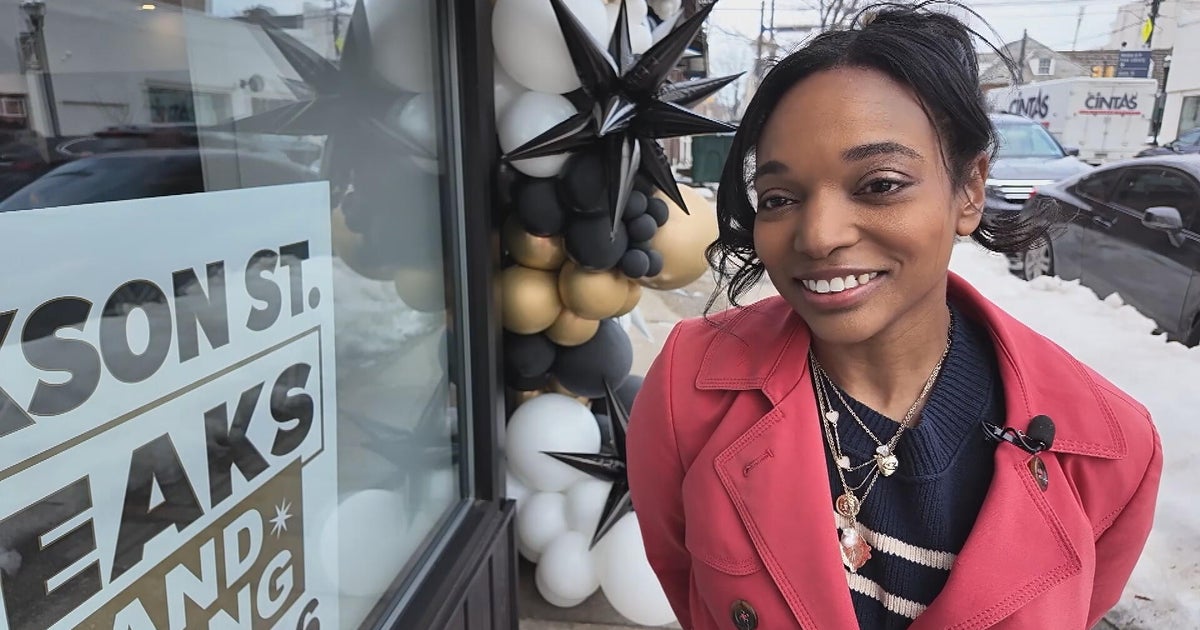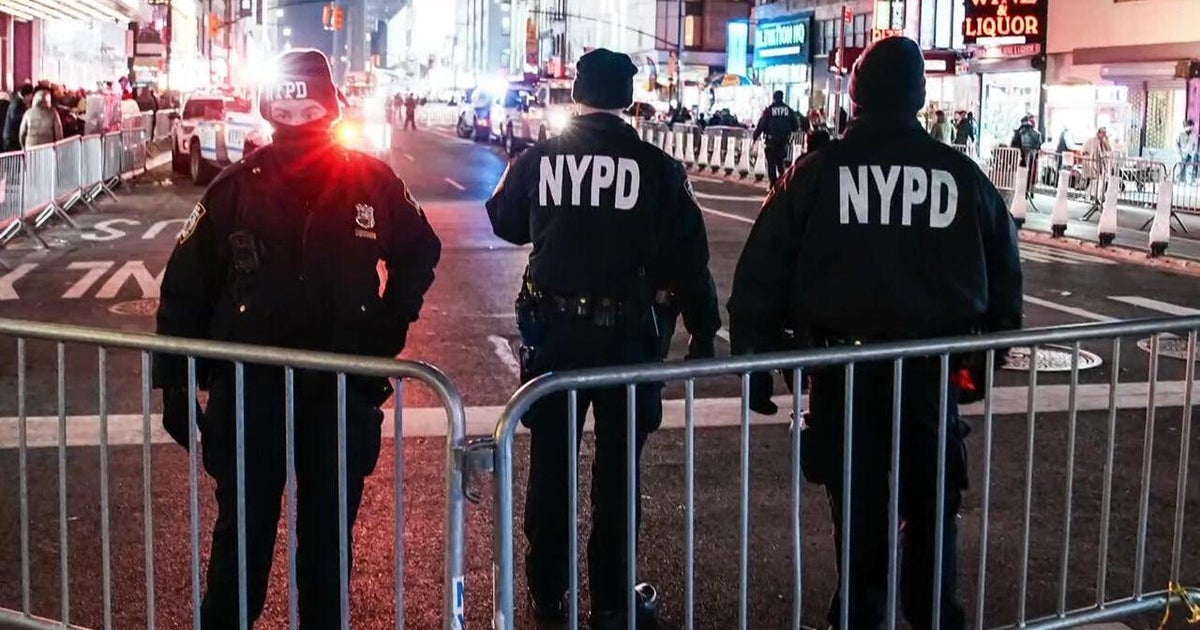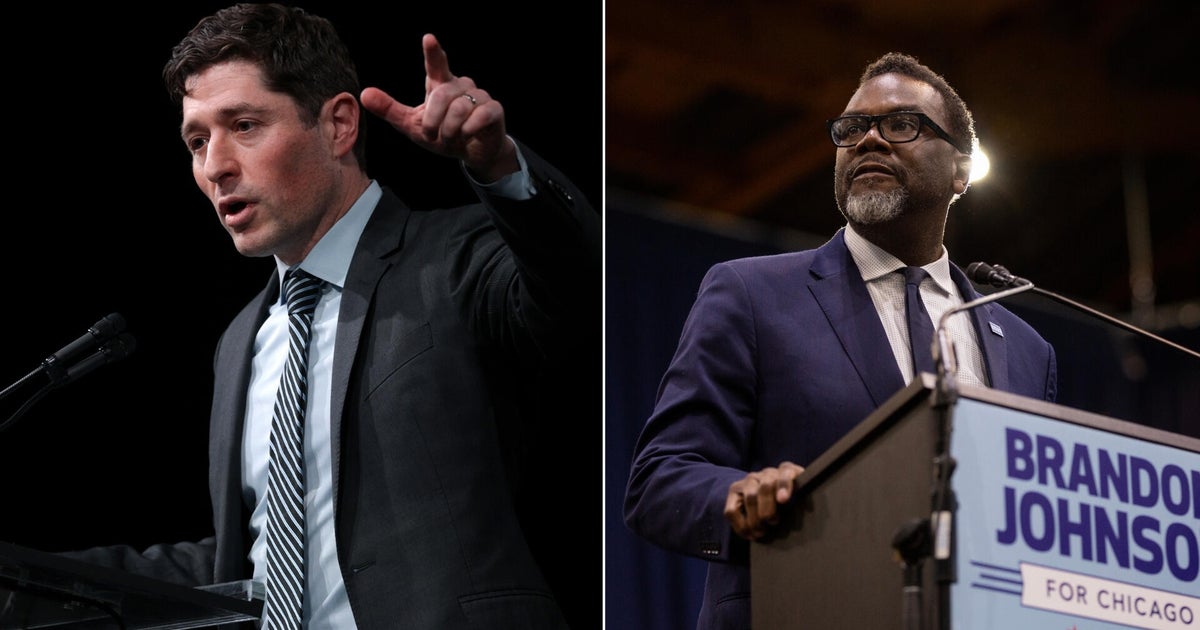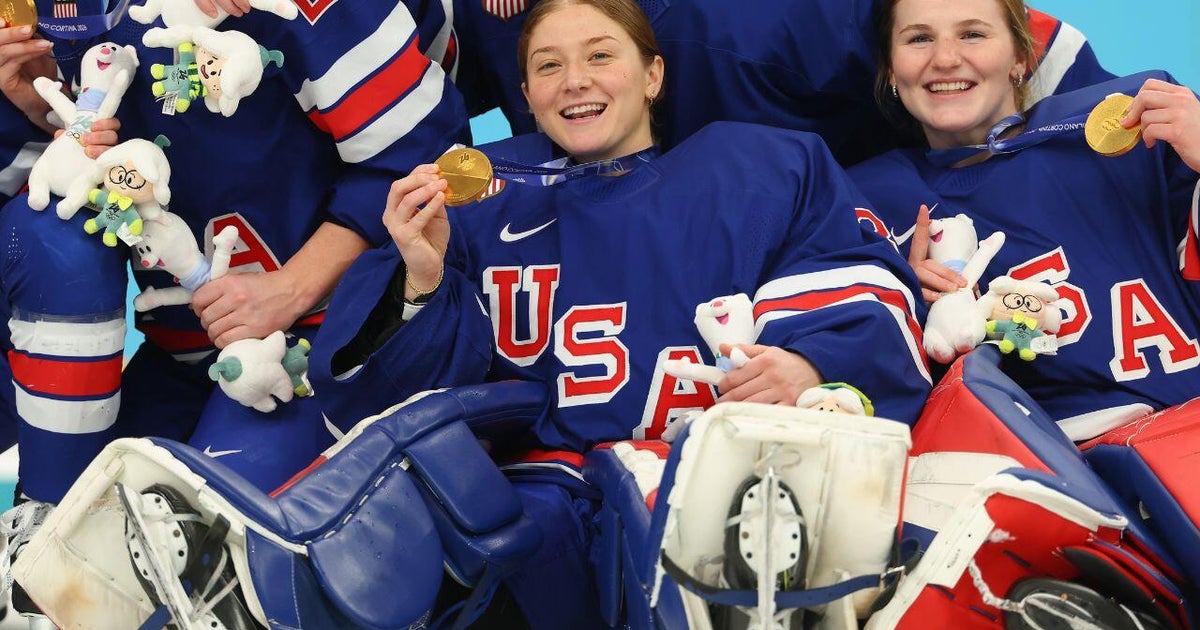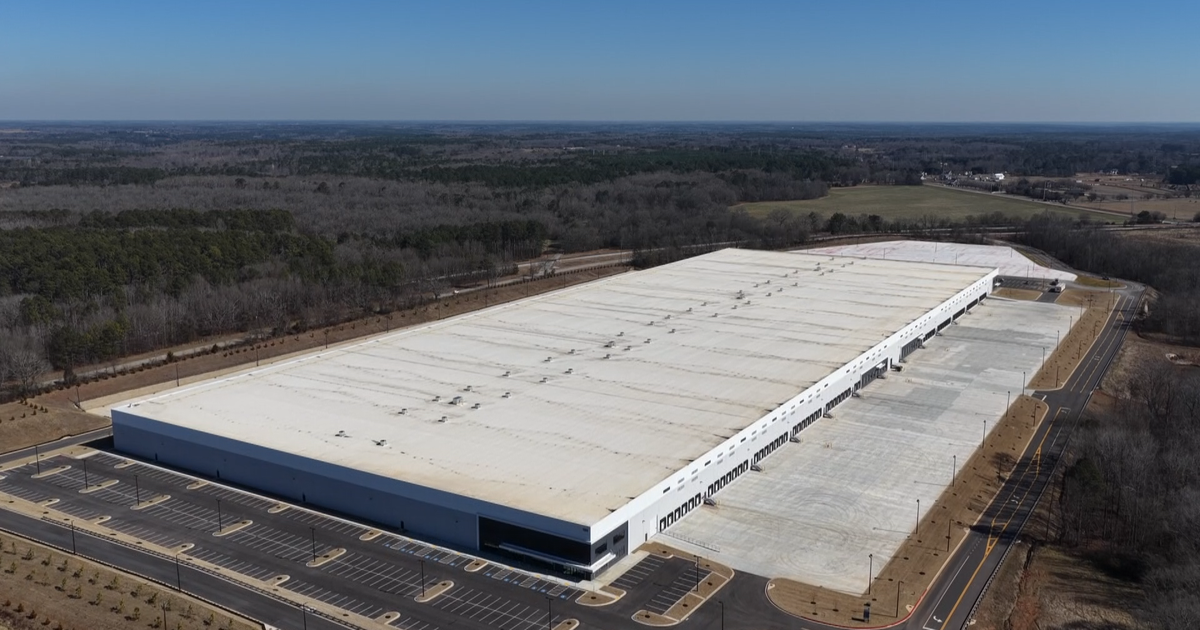Bears Proposed Moving From Chicago, Possibly To Gary, In 1995 -- Leading To Huge Fight Between Mayor Richard M. Daley And Team Brass
Compiled from archive reports by Adam Harrington, CBS 2 web producer
CHICAGO (CBS) -- Plenty of heads turned in Chicago on Thursday upon hearing the news that the Chicago Bears have placed a bid to buy Arlington International Racecourse with the idea that they could move to the suburbs.
This is not the first time the notion of the Bears moving from Soldier Field to somewhere outside the city has come up. The Bears considered doing the same in 1995 with several proposals - including one that would have sent them to Gary, Indiana – and it sparked a big fight between team executives and Mayor Richard M. Daley.
At the time, the Bears' lease on Soldier Field – which is owned by the Chicago Park District – was set to expire in four years. Bears President Mike McCaskey began entertaining the idea of the team moving from the stadium – first securing an option for a 207-acre site in Aurora. The Bears were also heavily courted by northwest suburban Hoffman Estates, and Warrenville and Naperville were also put on the map as possible new homes for the team.
McCaskey's plan called for a $285 million new stadium for the Bears, and he wanted $185 million to come from state funding and the remaining $100 million from private investors.
The idea of the Bears moving to Aurora or anywhere else was immediately unpopular among plenty of sports fans. On The Score sports radio at the time, one caller said, "Rich Daley will lose the election for sure if the Bears move out."
For his part, Daley famously reacted early on to the prospect of the Bears moving from Soldier Field by saying, "They can go to Alaska."
Daley in other comments reported by CBS 2 said he wanted to see the Bears stay, but also said he believed education was more important than sports.
There was also speculation about the possibility of the Bears leaving the Chicago area altogether. The Rams and Raiders had both left Los Angeles for St. Louis and Oakland, respectively, and Baltimore had lost the Colts to Indianapolis 11 years earlier and wouldn't acquire the Ravens until the following year.
Since losing the Colts, Baltimore had had a standing offer of a $200 million open-air football only stadium rent free for any team that relocated there, as CBS 2 reported at the time.
But the Bears' focus remained on Chicago area locations, and after they could not get government money for a suburban home in Illinois, they turned to a plan for a $482 million new stadium and entertainment complex in Gary, Indiana called Planet Park.
As reported by the Associated Press at the time, the complex on the southern shore of Lake Michigan would have included a three-tiered stadium with 9,000 club seats and 138 skyboxes, surrounded by a midway-entertainment concourse, a Bears hall of fame, and parking for 25,000 cars. A second phase of construction would have included a nine-hole golf course, an amusement park, hotels, retail shopping, and a campground, the Associated Press reported at the time.
It was to be paid for with an income tax of 0.5 percent. As the AP reported, the Bears would not have owned the stadium – it instead would have been owned by Northwest Indiana-Chicagoland Entertainment, Inc., which would have leased it to Lake County, Indiana, which in turn would have subleased it to the Bears.
As that proposal developed, Mayor Daley laid out a plan to renovate Soldier Field with the hope of and the area around it with the hope of keeping the Bears. As CBS 2's Larry Mendte reported at the time, the city got $28 million from the State of Illinois for the effort – twice the amount that Mayor Daley had asked from Gov. Jim Edgar.
But not long afterward, Mayor Daley complained that the Bears wanted to make a profit of $26 million per year and had requested a special city tax to make up the difference if they were to stay at Soldier Field.
Ted Phillips, now the Bears president and then the Bears vice president for operations, denied that the Bears ever asked for such a tax. As CBS 2 Political Editor Mike Flannery reported on Dec. 6, 1995, Phillips said the mayor was "doing nothing to keep the Bears" and called Daley's remarks "verbal diarrhea."
City negotiator Ed Bedore demanded an apology for Phillips' remark about the mayor the following day. But Phillips slammed the city again, saying, "It is extremely disappointing to hear continued inaccurate statements from City Hall, particularly blatant misrepresentations that the Bears are seeking guaranteed profits." Bedore in turn accused Phillips of not telling the truth.
After that, the Bears refused to meet with the city because of Daley's comments about the team's handling of the negotiations.
On Dec. 13, the City Council considered a resolution calling on President Bill Clinton and Congress to prohibit the use of federal funds by states trying to lure away professional sports teams. The resolution was also to urge the Bears to drop their plans to leave the city.
But the Bears told Mayor Daley the following day that the city's plans to remodel Soldier Field were not acceptable, and said they were walking away from talks with the city and focusing on the Gary plan instead.
Mayor Daley in the meantime visited Cleveland to talk with city officials there about how to keep sports franchises from leaving. Cleveland was struggling to keep the Browns in town at the time, and the Browns, in fact, did leave – becoming the Baltimore Ravens. A new edition of the Cleveland Browns started up in 1999.
On Dec. 15, Mayor Daley said a renovated Soldier Field would be good enough to attract any number of teams – and if the Bears were not among the teams that were interested, so be it. City officials at the time said they had spoken to another never-specified NFL team that was interested in playing in Chicago.
Meanwhile, Gov. Edgar said the hostilities between the Bears and City Hall had put the plan to remodel Soldier Field in jeopardy, remarking, "I would say that renovating Soldier Field doesn't look good at this point."
On CBS 2's noon newscast on Dec. 27, 1995, anchor Lisa Kim read the ominous headline, "Michael McCaskey says hopes for keeping the Chicago Bears at Soldier Field are dead," though there were other ideas the team was considering besides Gary. One of them involved a plan for a new domed stadium near McCormick Place, nicknamed "McDome," which Gov. Edgar favored but Mayor Daley did not. Talks of moving to Aurora or Hoffman Estates also reemerged.
Ultimately, the Gary plan fell apart. Lake County, Indiana Council members refused to back the 0.5 percent income tax to fund the new stadium.
Talk of the McDome at McCormick Place persisted for some years afterward, but finally in 2001, a deal was struck for a Soldier Field renovation plan.
After the 2001 season, the Chicago Park District began the 20-month, $606 million renovation project to restore structural integrity and expand seating at the stadium. Many were not pleased with the new look, comparing it to a flying saucer having landed in the middle of the old stadium and towering over its historic colonnades. Chicago Tribune architecture critic Blair Kamin called the renovated Soldier Field a "monumental eyesore," and it was stripped of its landmark status a few years after it reopened.
But the newly-renovated stadium reopened nonetheless on Sept. 29, 2003 as the Bears took on the Green Bay Packers.
Nearly 18 years later, talk of the Bears moving from Soldier Field has made headlines again. Even with the upgrade nearly two decades ago, Soldier Field still has a capacity of only 61,500, smallest in the NFL. There are 13 stadiums that hold more than 70,000.
CBS 2's Matt Zahn reported Arlington Heights has been a long rumored potential moving spot. But now that Churchill Downs has put Arlington Park property up for sale, it does become more of a real possibility.
In response to the Bears' latest moves, Mayor Lori Lightfoot has emphasized that the Bears are under lease at Soldier Field until 2033, and said, "As part of the city's recovery, many organizations are doubling down on their commitment to Chicago, and we expect the Chicago Bears to follow suit."



